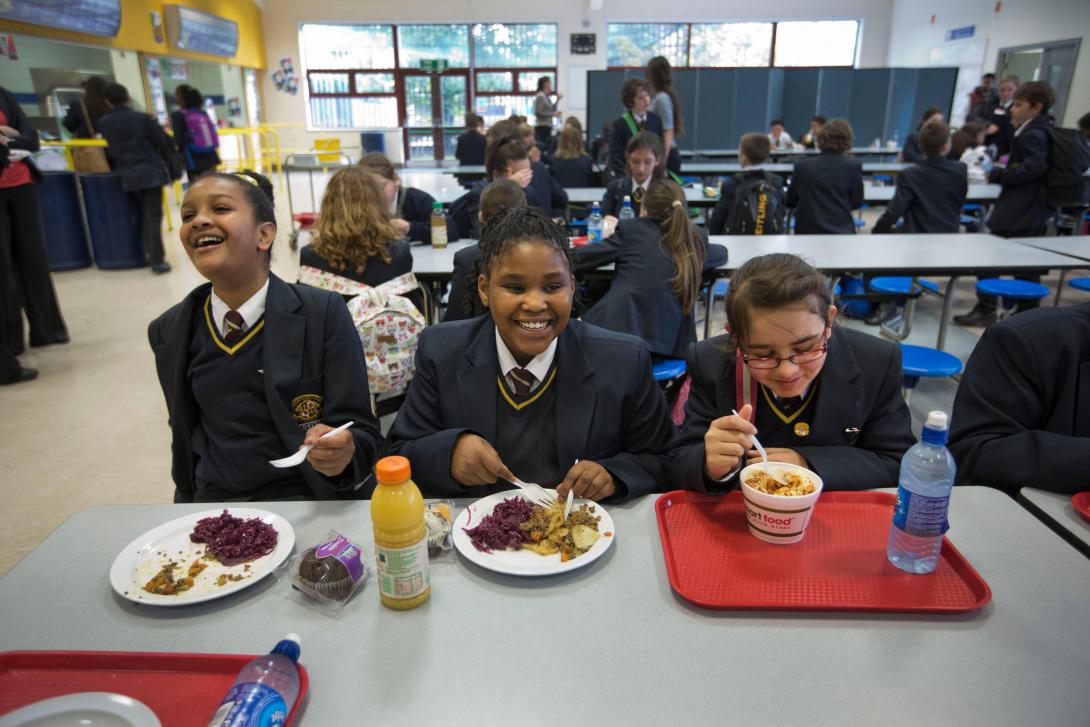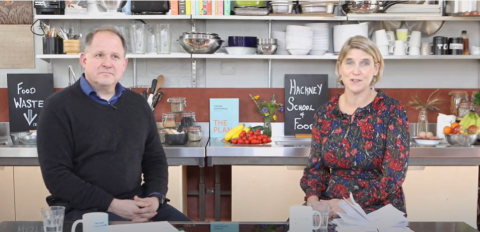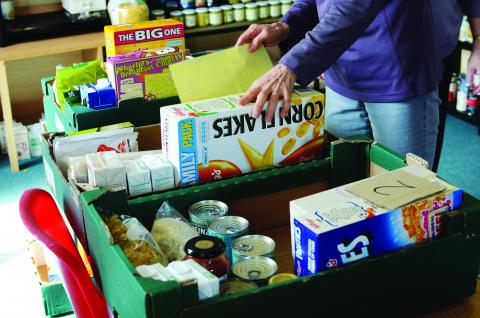16 June 2022
Opportunity to safeguard children's diets overlooked in Government's Food Strategy

The long-awaited Government response to the National Food Strategy published this week has been branded as both unambitious and disappointing – an accurate depiction when considering the recommendations (or lack thereof) taken forward to improve children’s health and diets. We look at what measures support children to eat well and what’s missing.
Free School Meals – Glaring Omission
A key recommendation of Henry Dimbleby’s report – published in two parts between 2020-21 – was to expand eligibility of Free School Meals to more children in England. Despite paying lip service to “the importance of school provision of healthy and nutritious food; an invaluable lifeline to many children and young families, especially those on low incomes,” Government has ignored this advice in their long-awaited response. Instead, their strategy simply states it is keeping “Free School Meal eligibility under review” – a holding line familiar to campaigners who have heard it repeated for the last two years without indication on when this lengthy ‘review’ might conclude or be acted upon.
Just days before the Government strategy was released, new data on Free School Meal eligibility revealed some 800,000 children living in poverty – or 1 in 3 – are being excluded from Free School Meals. If this wasn’t sufficient grounds for policy change, there was also a letter to Government signed by every leading educational organisation in the country asking for the £7,400 eligibility threshold to be increased to include children from families on universal credit, advancing towards universally provided free school meals. The voices of school staff are particularly important given they are the ones who see first-hand the heart-breaking consequences of children missing out on a quality hot lunch – children skipping meals, running into school food debt and lacking the ability to concentrate in class are often some of the accounts school staff share.
The inaction of Westminster on Free School Meals is even more glaring when compared to steps forward in the home nations. Despite Dimbleby’s recommendations being England-focussed since its publication both Wales and Scotland have decided to expand free school meal provision universally across primary schools and are looking to expand this next into secondary.
However, the document does give the Government opportunity to champion its Holiday Activities and Food programme which was funded in 2021 for three years to support children in the holidays after high-profile campaigning led by Marcus Rashford. But it should be remembered that this is only freely available to children eligible for Free school Meals – meaning many children struggling in the holidays still miss out.
We know too many families are struggling to put food on the team - in April, our survey found 19% of households with children had experienced food insecurity in the past month. As school caterers struggle with the pressures of rising food costs and wage costs, the knock-on impact on children falling through the gap of free school entitlement will make it more and more difficult to afford a school lunch. Expanding Free School Meals to more children will not only ensure they receive a nutritious meal but will also be beneficial for caterers due to increased uptake and economies of scale.
We can only hope that Government recognises their oversight and puts it right in the upcoming Health Disparities White Paper.
School Food Monitoring – Already in the pipeline
Despite declaring lofty ambitions to spark a ‘school food revolution’, the Government document simply repeats several announcements from the Levelling Up White Paper, including the intention to better monitor compliance with School Food Standards through pilot programmes organised with the Food Standards Agency. The report also indicates that school leaders will now be required to publish a ‘school food vision’ on school websites, adding a little more detail to a commitment already made previously.
There’s also a mention of the ‘Get Help Buying for Schools’ service, to assist schools with procurement, which has been in the pipeline for more than a year. Several other recommendations affecting school food were demoted to being ‘kept under review’, including the School Fruit and Vegetable Scheme.
Healthy Start – Falling short
Another weakness in the report relates to Healthy Start – a statutory scheme that supports low-income children and pregnant mothers to afford healthy food. As the cost of living bites, it’s a brilliantly targeted solution to supporting families in need to eat well. Dimbleby had recommended a raft of measures to improve the scheme including extending who can access it (Healthy Start is restricted to families who earn less than £408 per week – even more stringent criteria than that of Free School Meals), widening the scheme so it reaches children up the age of 5, and investing in proper marketing to improve uptake.
None of these measures have been adopted, however the Government does commend itself for moving the scheme from paper vouchers to a digital scheme. There’s no mention of the problems with the digital roll-out that left many struggling households without the support they were eligible for and leading to more than 155 frontline groups writing to the Department of Health to raise their concerns.
Now digitisation is complete, thankfully most of the issues have been resolved. Which makes it the right time for urgent investment in improving and expanding Healthy Start. While we welcomed the increased value to the voucher last year, the soaring costs of inflation means Government need to carefully consider whether the scheme is fit for purpose. All eyes are now on Sajid Javid’s Health Disparities White Paper to put in place these much-needed changes.
The full Government paper can be read here.
A recording of a webinar summarising the recommendations can be found on our website here.





